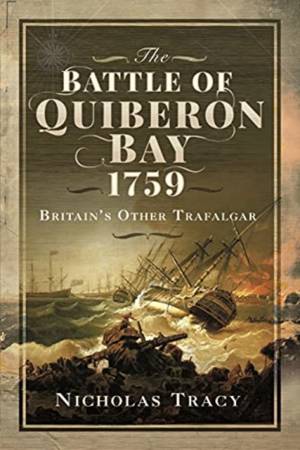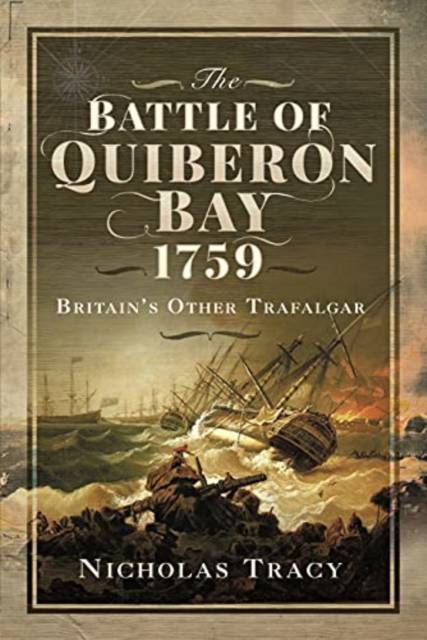
- Afhalen na 1 uur in een winkel met voorraad
- Gratis thuislevering in België vanaf € 30
- Ruim aanbod met 7 miljoen producten
- Afhalen na 1 uur in een winkel met voorraad
- Gratis thuislevering in België vanaf € 30
- Ruim aanbod met 7 miljoen producten
Zoeken
€ 20,95
+ 41 punten
Uitvoering
Omschrijving
Revered naval theorist, Alfred Thayer Mahan, thought the Battle of Quiberon Bay (20 Nov 1759) was as significant as Nelson's victory in 1805, calling it "the Trafalgar of this war [the Seven Years War]." Arguably it was even more vital. Britain in 1759 was much less well-defended, with virtually no regular troops at home, and the threat of French invasion was both more realistic and more imminent. When the British fleet under Admiral Hawke fell upon them, the French ships of the line under Admiral Conflans were actually on their way to rendezvous with the invasion troopships gathered at the mouth of the Loire. Yet the battle and the admiral remain relatively obscure - there is no Quiberon Square or Hawke's column.
The battle itself was fought in terrible weather, the French attempting to exploit their local knowledge by heading for Quiberon Bay, assuming the British would not follow them among its treacherous shoals in such conditions. Hawke, however, pursued them under full sail and the French ships were destroyed, captured, run aground, or scattered for the loss of only two British ships which ran aground. The invasion was thwarted.
Professor Nicholas Tracy studies the battle and its strategic consequences, particularly upon the war for North America.
The battle itself was fought in terrible weather, the French attempting to exploit their local knowledge by heading for Quiberon Bay, assuming the British would not follow them among its treacherous shoals in such conditions. Hawke, however, pursued them under full sail and the French ships were destroyed, captured, run aground, or scattered for the loss of only two British ships which ran aground. The invasion was thwarted.
Professor Nicholas Tracy studies the battle and its strategic consequences, particularly upon the war for North America.
Specificaties
Betrokkenen
- Auteur(s):
- Uitgeverij:
Inhoud
- Aantal bladzijden:
- 256
- Taal:
- Engels
Eigenschappen
- Productcode (EAN):
- 9781399014496
- Verschijningsdatum:
- 22/10/2021
- Uitvoering:
- Paperback
- Formaat:
- Trade paperback (VS)
- Afmetingen:
- 156 mm x 232 mm
- Gewicht:
- 430 g

Alleen bij Standaard Boekhandel
+ 41 punten op je klantenkaart van Standaard Boekhandel
Beoordelingen
We publiceren alleen reviews die voldoen aan de voorwaarden voor reviews. Bekijk onze voorwaarden voor reviews.











